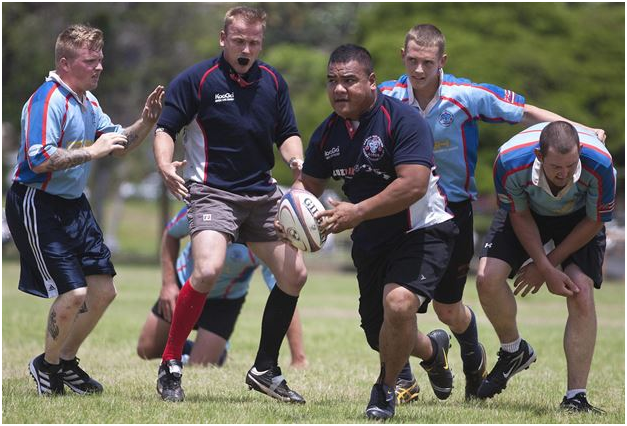There are so many things to think about when considering your training priorities: building strength, improving speed, practicing your ball-handling techniques and reaction skills, as well as honing your hand-eye coordination.

It’s not just the physical and game playing aspects to consider. Here are a few tips on how to improve your overall performance and get the edge over your rugby opponents:
Set Clear Objectives
Setting milestones is an important step in everything you do, but when it comes to training for an improved rugby performance, it is necessary to create both short-term and long-term goals. Short-term goals involve your training sessions; think about what you want to achieve within each session. Longer-term goals are more about what you want to achieve in your game by the end of the season. Goals help you to see and maintain progress as well as experience consistent improvement. When you start to see results, you are motivated to continue and to make even more improvements in your performance. Here is more information about the importance of setting goals in sport: https://www.psychologytoday.com/gb/blog/the-power-prime/201710/make-your-sports-goal-setting-smarter.

Practice
The practice is a prerequisite in any discipline in order to improve performance. Rugby training drills offer effective work-out and help to improve specific aspects of your game. There are rugby drills for passing, kicking, attacking and defending; the list goes on. You can get new ideas for rugby drills by watching rugby training drill videos. A great activity for improving your skills, rugby training drill videos can be watched at Sportplan. Practice makes perfect, and if you put the time in, you will start to see improvements very quickly.
Rest Your Muscles
As any professional sportsperson will confirm, allowing your muscles time to recover is paramount to improving your performance. Cooling down after practice is just as important for your muscles as warming up and is the most effective way to avoid muscle strain. The best way to repair and strengthen your muscles is the rest. Add rest days to your training program to help towards your fitness goals, and try not to over-train.
These tips will assist you in improving your rugby performance. Remember to set clear and achievable objectives, include drills in your training schedule and, finally, make sure you rest between training sessions and rugby games to maximize your performance overall.


